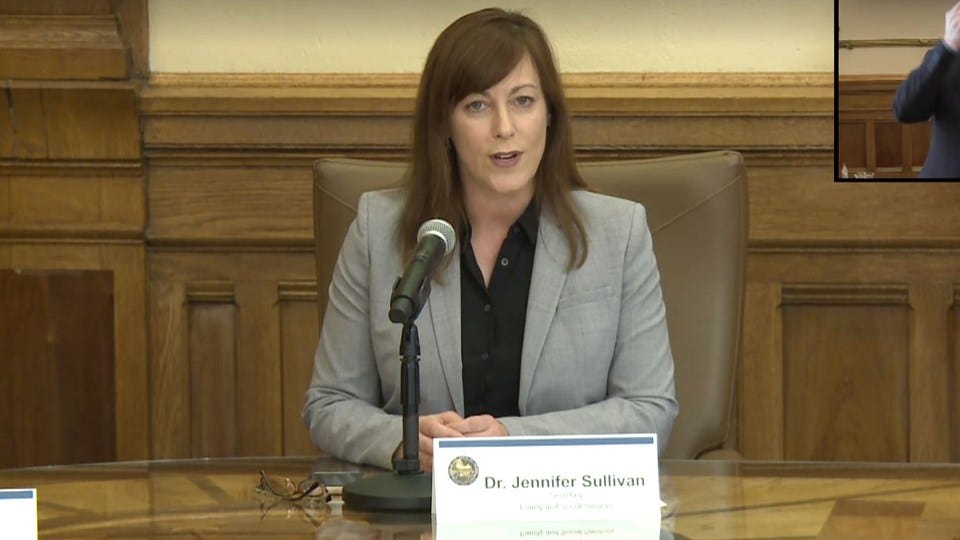Pandemic Raises Mental Health Concerns
 Dr. Jennifer Sullivan is secretary of the Indiana Family and Social Services Administration
Dr. Jennifer Sullivan is secretary of the Indiana Family and Social Services Administration
Subscriber Benefit
As a subscriber you can listen to articles at work, in the car, or while you work out. Subscribe NowAs Hoosiers enter the fourth week of a stay-at-home order, mental health experts say it is easy to feel overwhelmed and anxious during these times of isolation.
But for those already receiving behavioral treatment or addiction counseling, the challenge is intensified.
“We’ve seen some alarming statistics here in Indiana over the last few weeks that are indicative that our collective psyche is increasingly fragile,” said Dr. Jennifer Sullivan, secretary of the Indiana Family and Social Services Administration.
Sullivan joined Governor Eric Holcomb Friday during his daily COVID-19 briefing to the media.
“Our message goes out to those who may be infected, those who may not be infected but certainly those affected by COVID-19,” said Holcomb. “As we sail through this storm together, we want everyone to know that there are folks here who will deal with the troubles that maybe some are keeping inside.”
Sullivan said gambling hotlines average 30 calls a month, but last week it was more than 200.
She says the agency’s addiction hotlines average 20 calls a week, but they are now receiving 20 calls per day.
The 2-1-1 helpline which refers users to community-based organizations and government agencies for assistance has been especially inundated with nearly 25,000 a day.
Many of those calls, said Sullivan, is related to mental health and thoughts of suicide.
“We know that many Hoosiers, even those that do not have a history of mental health diagnoses, are currently suffering from an increase in adverse mental health symptoms, caused not only by the social distancing that has disrupted so much of our daily lives but also the uncertainty of the time to come,” said Sullivan.
She said the combination of social distancing, stay-at-home orders, business closures, and layoffs is taking its toll, causing people to experience increased anxiety and depression.
Sullivan compared the pandemic to a cataclysmic event. But unlike a disaster where survivors suffer a terrible loss and then work to build back from it, this healthcare crisis is, “slowly unfolding constantly changing life and livelihood disrupting crisis is unlike anything we have ever seen.”
Unfortunately, many counselors, psychologists, and psychiatrists have temporarily closed their doors or reduced their office hours. But Sullivan said many of those same mental healthcare providers are using phone and video consultations to keep their crucial services available.
“They’ve responded with amazing creativity and innovation, the ability to access mental health services without barriers like transportation, or standard office hours while still being able to maintain social distancing has been one of the highlights of this response thus far,” said Sullivan.
Sullivan urged anyone experiencing symptoms to see help, either by calling 211, their healthcare provider or their insurance company to gain access to teletherapy.
During the governor’s briefing, Dr. Hani Adhmad, psychiatrist at the Bowen Center, discussed mental health warning signs.
